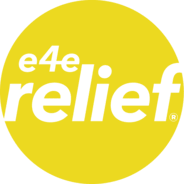2023 brought one of the most active Atlantic hurricane seasons in recent history. Between June and November, 20 named storms formed in the Atlantic basin, which ranks fourth on the list of most-named storms in a year since 1950.
One of those storms was Hurricane Idalia, which made landfall on August 30 in Florida’s Big Bend. Idalia underwent a rapid intensification in the 24 hours before it struck as a powerful Category 3 storm, with maximum sustained winds of 125 miles per hour. It produced a devastating storm surge, knocked out power to hundreds of thousands of residents, and damaged homes and businesses across the impacted area.
In the weeks after Hurricane Idalia hit, our grant specialists received thousands of applications from those searching for ways to navigate the unexpected costs that often accompany disaster. Our organization provides emergency financial relief grants on behalf of compassionate companies who understand the value of investing in the mental and financial well-being of their workforce during times of crisis. In partnership with those companies, we have the unique opportunity to provide individuals in need with hope during hardship. This is one of their stories.
The news often shows photos of devastation and damage in the wake of hurricanes – the downed trees, the washed-out streets, the homes reduced to mere shells. However, it’s important to remember that these storms wreak havoc in ways both large and small. For this individual (who will remain anonymous to protect her privacy), her home suffered extreme flooding in the wake of Idalia. She lost many of her belongings to the water: clothes, shoes, rugs and linens. Her furniture was damaged, and when the water finally receded, she and her family had to work quickly to protect her home from mold. To make matters worse, she lost power for two days and was forced to throw out everything in her freezer and refrigerator. Hundreds of dollars in food was suddenly gone.
It was a challenging time, and she was fortunate to have the support of her family as she attempted to restore her home. She was also fortunate to work for a company that offers an emergency financial relief program, providing tax-free grants to individuals who have experienced a disaster.
In the U.S., 65% of working Americans are living paycheck to paycheck, and an unexpected expense can compromise an already fragile financial situation. Emergency financial relief grants are designed to help offset the costs of those expenses and restore financial stability when individuals need it most. Those individuals are then able to return to work faster and maintain productivity. They also experience increased engagement and higher rates of retention, choosing to stay with the company who supported them when they needed it most.
In the case of this applicant, our grant specialists worked with her to process her application. Once she was approved, she was awarded a grant to help her through this challenging time.
We can’t prevent disasters and hardships from happening, but we can provide relief when people need it most. And we are grateful to partner with forward-thinking companies who understand the meaningful impact of providing compassion during crisis.


